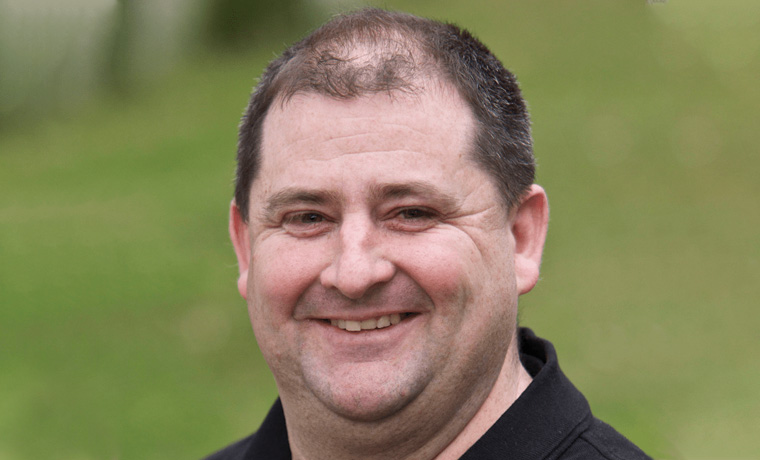Profile
Digitising healthcare: One unsung developer is here to help
One of the world’s most influential digital health developers lives in Melbourne, but few in Australia know his name.
 Why is it so hard to shift healthcare to digital communication?
Why is it so hard to shift healthcare to digital communication?
This developer’s creation – a standardised way of exchanging electronic health records across different platforms – has been enthusiastically embraced by developers and the US Government.
Now, tech titans like Google, Apple, Amazon and Microsoft have taken up the standard as they push into digital health, followed by major cloud computing providers.
But few know the name of the man behind HL7 FHIR, which stands for Health Level 7 – Fast Healthcare Interoperability Resources.
And that’s more or less how Graham Grieve likes it.
The Melbourne developer’s idea was this: create a standardised base layer to allow sensitive healthcare data to transfer between often very different software products.
‘FHIR started with a few of us and the community has grown in importance and benefit to people around the world,’ Mr Grieve told newsGP.
‘What FHIR achieves is making it easier for systems to be ready to exchange healthcare information and have it in the right place at the right time. It solves interoperability.’
The issue of interoperability has traditionally bedevilled digital health, with different clinical software products and secure messaging services often unable to exchange data.
It is a key reason healthcare is the last bastion of the fax, since ordinary email is not deemed secure enough.
But the fax is an old technology, one by which sensitive information can easily be sent to the wrong recipient, as The Age recently reported.
One of Mr Grieve’s fans is influential digital health advocate Dr Nathan Pinskier, former Chair of the RACGP Expert Committee – Practice Technology and Management.
‘FHIR has taken the health informatics world by storm,’ he told newsGP.
‘Increasingly, we’ll see that this will be an FHIR-enabled world, allowing us to move data from one source to another. At a national level, I suspect My Health Record will move to FHIR.’
Dr Pinskier recalls Mr Grieve first pitching his idea back in 2012.
‘What he developed was rapidly endorsed by developers,’ he said.
‘It’s a much better way of doing business and the underlying architecture is better. Because it has a whole community, it’s gaining strength – particularly in America, which had so many different information exchanges that it was ripe for the plucking.’
While FHIR has to date made a bigger splash in the US, it is starting to be taken up in Australia.
‘It is now being used in the Australian Digital Health Agency’s secure messaging project. The number of projects being developed now using FHIR is just staggering,’ Dr Pinskier said.

Product director and digital health advocate Grahame Grieve.
Mr Grieve has been working on FHIR for eight years now.
FHIR was released at just the right time to take advantage of a major opening up of the US’s digital health ecosystem, coming after then-President Barack Obama brought in a new incentive scheme for healthcare providers to introduce electronic health records.
‘Eight years ago, the US said we need interoperability and an open, flexible healthcare system. They forced the system to become open in a way it had not been,’ Mr Grieve said.
Key US health agency, the Centers for Medicare and Medicaid Services (CMS), this year announced plans to embed FHIR as part of a new interoperability push.
‘What we’re seeing this year in the US is that after enough people adopt new infrastructure, there comes a tipping point and it becomes viable for everyone. The network effect is starting to kick in in the US,’ Mr Grieve said.
‘It’s like phones; what does the first person to have a phone do with it? Or even the first 100 – what’s the point? But, at some point, the people you want to talk to have phones, and those who don’t are left out.’
Mr Grieve believes Australia is several years behind the US in terms of interoperability.
‘We’re only now saying we need an interoperability program. We always follow behind the US, for good or bad,’ he said.
Although he has previously been critical of Australia’s focus on a centralised health database, Mr Grieve is sympathetic to the challenges of steering the large digital health ecosystem and its many public and private players.
‘Every country has a different digital health cycle. The Australian cycle is only just finishing playing out now [with the My Health Record rollout],’ he said.
‘It’s like a big game of leapfrog; after you finish your leap, you’re on top of the world – but then you find someone is leaping over you.’
One key challenge in digital health, Mr Grieve believes, is the fact that providers cannot simply use email.
‘In healthcare, you can’t just email stuff in the clear. It needs to be secure,’ he said. ‘What other organisations have the same issue? The military, and they build their own military grade email system.
‘We don’t have the economic capacity to build a separate information system, so we keep using faxes as the only accepted electronic way to breach the information barrier.
‘The ways data has been exchanged in corporate, institutionally bounded spaces has been driven by strict guidance around sharing data. And that’s true in healthcare, where it’s dominated by institutional boundaries and driven by information management policies.
‘We’ve seen those walls collapse in a lot of industries where people just started emailing each other. But it’s not an easy problem in healthcare.’
digital health ehealth electronic health records interoperability
newsGP weekly poll
As a GP, which if these impacted you most in 2025?